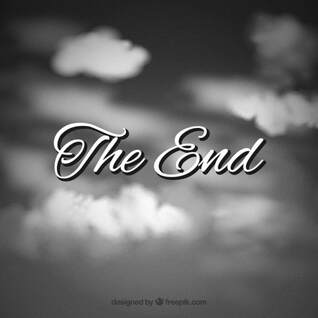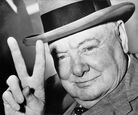weekly column
|
Each week, find a commentary on something connected to verses of Torah or another source of wisdom
|
|
Each week, find a commentary on something connected to verses of Torah or another source of wisdom
|
 The Last of the Last of Deuteronomy Never again did there arise in Israel a prophet like Moses – whom the Lord singled out, face to face, for the various signs and portents that the Lord sent him to display in the land of Egypt, against Pharaoh and all his courtiers and his whole country, and for all the great and awesome power that Moses displayed before all Israel. Deuteronomy 34:10-12 Of the many privileges I had as a rabbi, the saddest and most satisfying was the eulogy. It is a sentiment I have heard from many of my colleagues, as well as clergy in other faith traditions. The opportunity to represent a life to those who were impacted by it is a profound responsibility at a powerful and sacred moment of transition. I know a rabbi who, early on in his career, thought he had it all figured out. He had paragraphs that he would fit together, as he put it, “like Legos.” With a parable here and a section of a psalm there, attached to a recitation of the hard facts of the deceased’s life, he would construct a eulogy that sounded personal and familiar. Eventually, however, people caught on, and “one from column A and two from column B” was no longer effective. When I heard him gleefully describe his hack, I promised myself I would never do that. Funerals (like all life cycle moments) may have been usual for me, but they were each unique for the family and friends involved. They deserved to know that the person who left a gap in their lives was like no one else. And, to the very best of my ability, those who came to mourn in support and offer comfort needed to be validated in their empathy. When I could no longer share the individuality of the broken heart, I decided long ago, it would be time to make way for someone who could. The highlights of the life of Moses make up four-fifths of the books of the Bible called by his name. Though he lived 120 years, however, the Bible really narrates only a handful of them. And while later Jewish tradition shares or speculates other events, Moses the hero is eulogized more than Moses the man. He is known for his encounters with God, his challenges to Pharaoh and his leadership of Israel. Like any good eulogy, the personal flaws that might have influenced his public life were underplayed – his temper, his stutter, his disaffection from his family. We don’t even know if his wife, his children or any grandchildren were present to be consoled. These few lines of tribute, laudatory though they may be, illustrate the dilemma I always faced when it was my task to remember someone I did not know very personally, or perhaps at all. The public aspects of a life can be framed with compassion and emotion. But what really makes each of us like no one else is the influence we leave on those we love. Yes, that influence can fluctuate between uplifting and difficult. But it is not a father’s public office or a mother’s business acumen that makes for a beloved parent. Taking the time to listen carefully (and often below the plain meaning of remembrances) is what reveals the essence of the person. When a family member or close friend offers a eulogy, it is my experience that the remarks are frequently about the speaker more than the subject. It’s natural. The pain of loss is very personal, and that pain frames the moment. Such a eulogy inspires empathy for the speaker and, by extension, the listener’s sense of their own personal loss. But I always took it as my responsibility to spend much less time on my own grief than on those who heard me speak. My colleagues who take similar satisfaction as I do in comforting the mourners know, I suspect, that they are conduits for the memories and impressions of others. Any other sermon flows from my own perspective, my own ideas, my own opinion, even my own Lego-like stories. A eulogy (and to a lesser extent remarks at a happy life cycle moment) should flow from the relationships that have the subject at the center. The listener should not be inspired to comfort me. Rather, I should put my comfort at their service. And that means listening with an open heart to family and friends to discover some essence of the person so that it can be reflected back. Never again did there arise a prophet like Moses. Nor a father like Zelophehad. Nor a sister like Miriam. Nor a son like Nadab. Nor a person like you. At the end of the narrative of every life, however long or brief, there should be an acknowledgment that this person, in the context of friends and lovers, was like no one else. ______________________________________________________________________________________________________ Tam v’nishlam. Complete and whole. My effort to comment on the Torah using the choice of a single verse from each chapter – from Genesis, verse three of each chapter, Exodus, verse 5, Leviticus, verse 8, Numbers, verse 13 and the last of Deuteronomy – is over. If you followed the whole journey or any part of it, thank you. For the time being at least, each brief essay can be found on jackmoline.com under the “Weekly Column” link. I will take a break for a while, maybe longer.
0 Comments
 The Last of Deuteronomy O happy Israel! Who is like you, a people delivered by the Lord, your protecting shield, your sword triumphant! Your enemies shall come cringing before you, and you shall tread on their backs. Deuteronomy 33:29 Victory is a zero-sum outcome. Where there is the thrill of victory, there is the agony of defeat. Where one side is victorious, the other side is conquered. And, of course, to the victor go the spoils. So much of history is the narrative of conflict that results in the subjugation of one people and their land by another. Poets and prophets imagine a time when people live in harmony and none make them afraid, but reality – and the metaphors we use to explain it – is about violence and vanquish. It seems as if every few months there is a contest of some kind in which armies clash and gladiators battle. I don’t mean that literally, of course, though there are indeed such conflicts too frequently around us. Our national amusements are athletic competitions in which people in uniforms climb a pyramid of defeated opponents to claim the title of Champion (of the World or at least the National). Music, film, television, and other popular entertainments strain to reach the top of a measure of sales vying for the limited dollars and sets of eyes and ears in the marketplace. And the increasingly exhausting and expensive political campaigns that winnow out all but precious few candidates and then allow only one to lay claim to a position of power seem to occupy broadcast and social media constantly and overstuff our inboxes. The focus on triumph in our culture is undeniable. Our generation did not invent it, to be sure. Of the many hymns to the United States that might have represented us as the national anthem, we were not bequeathed with amber waves of grain or freedom ringing from every mountainside. Instead, bombs bursting in air are the proof that we emerged victorious. Our country did not invent it, to be sure. Abraham established himself in war, Simeon and Levi obliterated their sister’s attackers, Moses officiated over the suffering of the Egyptians and decimated them at the Sea, the Israelites knew they were in God’s favor when battles ended in their triumph and in disfavor when they themselves suffered defeat. But victory and success are not synonymous. A leader may declare a war on poverty, or on drugs, or on a pandemic, but even lacking the troops to fight back, the poor will never vanish from the land, there will always be another high to chase, and, God help us, another virus will come to get us. No army – not even the United States Army – is always and forever victorious. Victory pretends to permanence, but it does not succeed. One of my friends who won one of those temporary victories in a political campaign tells me all the time that she tries to avoid sports metaphors in her rhetoric. The notion that to be successful means someone has to lose just seems counterintuitive to her. Victory focuses on the battle. Success focuses on the outcome. Rather than trying to win, she suggests, we should join in a quest to find the best possible outcome. In a victory, a worthy opponent sees all efforts to no avail. In a quest, the unique contributions of all participants are put to good and productive use. Even as I write these words, they make me uncomfortable. It isn’t that I am wrong (heaven forfend!). It is that I am inculcated as an American patriot and a knowledgeable Jew that so much of our persistence in this world is a result of our enemies cringing before us, because they certain have tried to make us cringe before them. Precisely because we are in a position of privilege and, in so many ways, dominance, we have the capacity to shift the paradigm. Our goal should be win-win, not zero sum. As Americans, we celebrate “we the people,” we seek “the common defense,” we desire “the general welfare.” Most of our enumerated rights and privileges are collective in nature and outcome – free speech and assembly, a jury of peers, equality of citizenship – or designed to benefit the body politic – freedom of belief, suffrage, probable cause in warrants. We should not seek to tread on the backs of our defeated enemies, especially if the “enemy” is entitled to the rights and privileges we seek to preserve. Moses was an unparalleled leader in his time and taught more truths than any one of his statements can capture, except maybe for one. When Jews gather for prayer and praise, when they lie down and when they arise, they recite that single uncompromisable truth: God is one. As creations in that image, that is how we should see each other – not as obstacles to victory, but partners in pursuing success.  The Last of Deuteronomy You may view the land from a distance, but you may not enter it – the land that I am giving to the Israelite people. Deuteronomy 32:52 I try not to be too theological in these columns, which may be a peculiar decision since I am writing about the text of the Bible. When I do write about God, I try to avoid defending, justifying, or apologizing. First of all, God does not need me as an advocate and, more important, I am filled with more questions than answers. But here we are, closing in on the end of the Five Books of Moses, and I can’t help but feel a sort of desperation on everybody’s part. The Israelites are tired of forty years of wandering, thirty-nine of which were without anything remarkable enough to warrant even a mention. Moses must be exhausted, having spent three different lifetimes as three different people – prince, shepherd, nomadic chieftain. And as for God? The word I most often imagine is “exasperated.” After all, nothing ever works out as God wants. That’s a terrible record for the Master of the Universe. And when you are God, you can’t quit, even if it seems to us like sometimes God is AWOL. That leaves us, the readers, who have struggled with this collection of stories, laws, and instructions from the first chapter of Joshua (the next episode after Deuteronomy) until today. The pious among us continue to ask, “what does God want of me/us?” The impious among us roll our eyes and eat bacon cheeseburgers on Yom Kippur. And in between you can find most of us. This denial of appeal at the eleventh hour strikes a lot of folks as enormously cruel. Moses is being denied his moment of achievement for what seems like a trivial reason against the backdrop of devoted service. He struck a rock instead of speaking to it. For goodness sakes, he took his life in his hands and overcame a speech impediment to go head-to-head with Pharaoh and then, on nothing but faith, led his people on an unexpected forty-year sojourn filled with everything from divine revelation to attacking marauders to seditious rebellion. Shouldn’t he have gotten a break? A songwriter named Julie Gold wrote an inspired piece of music more than 35 years ago that was, before too long, recorded by Bette Midler. It was called “From a Distance,” and it won a Grammy award some five years later. The song is beautiful in its description of the long view of our world, so much so that among its many iterations was being the soundtrack for a joint American-Russian space mission. The chorus includes the repeated phrase, “God is watching us from a distance.” I think part of the appeal of the song to people of all persuasions (except, maybe, avowed atheists) is the notion that the harmony and peace we all yearn for is visible…as long as you don’t look too closely. The fact is that everything in our lives looks a little better from a distance. Fruit. History. Skin. Childrearing. 2020. Better from a distance. I suspect that it is natural for believers and those who want to believe to hope that God will be present in the details of their lives. (Never mind if that’s where the devil allegedly resides.) I have a friend who made a wish – actually a very silly one – that he used to “test” God and, when it came true, he turned his spiritual life around, including embracing a different faith tradition than the one in which he was raised. I am confident in affirming that God had nothing to do with the moment, which was entirely incidental and insignificant, almost as foolish as praying that your buttered toast will land dry-side down when you drop it. It meant something to him and gave his unmoored life a sense of purpose. But if God was indeed watching him close-up when this happened, I suspect that there was a metaphoric cosmic face-plant. Instead, I choose to believe that this last lesson to Moses is actually the fulfillment of his one personal prayer forty years earlier. “Show yourself in all your glory,” younger Moses says at the very beginning of this forty-year trek. God insists that no one may see that glory and live. What God is, who God is, may not be seen up close. The fulfillment of that prayer can only come at a distance. And what does Moses see? He does not necessarily view the Promised Land. Instead, he views the promise of the land. In that moment of fulfillment, Moses sees through God’s eyes and knows the glory of the potential of creation. Throughout this long saga from Eden to Mount Nebo, every time God has entered the story, something has gone awry. But what keeps the Holy One coming back is viewing the land(scape) from a distance. Moses does not need to visit the land for his prayer to be answered. Sorry to be so theological, but I felt that sometimes I have been so granular in expressing myself for these many years that this once I could indulge my own belief, that which has sustained me for a long time. From a distance.  The Last of Deuteronomy Then Moses recited the words of this poem to the very end, in the hearing of the whole congregation of Israel. Deuteronomy 31:30 I was thinking about the tableau described in this verse as I watched Amanda Gorman, the extraordinary young poet who recited her work at the inauguration of President Biden. Imagine Moses, standing before the assembled Israelites who were on the very edge of their newest adventure. In pretty short order (spoiler alert), Moses would be dead, but before he stepped aside so that they could proceed, he inspired them with a poem. Not so for the poet laureate of the inauguration. Like the Israelites listening to Moses, even if mitigated by a screen, we heard and witnessed all the words of her poem to the very end. I know that I wondered who the young woman in the yellow coat and red hairband was as the cameras panned across the attendees. But once she stepped to the microphone, there was no doubt. Her recitation was more than the composition itself – it was her voice, her presence, the moment and, without question, the yellow coat and red hairband. I am a big fan of poetry, though I am the first to admit I do not understand it well. I can’t explain iambic pentameter or distinguish a sonnet from a ballad. I have written haikus and limericks, but I can’t remember a one of them. And I must acknowledge that if asked to provide an example of a poem, I would likely think that I shall never see or, perhaps, suggest that you listen, my children, and you will hear. Please don’t roll your eyes. For me, poetry is most effective when it is performed. Listening to it has not made me a literary scholar, but it has made me a lover of the literature. I have books of poems on my shelf, and one of the very few high school textbooks I have saved is the book of poems from ninth grade. (“A Valediction: Forbidding Mourning” by John Donne, which is over 500 years old, is the highlight, to my mind.) But as much as I like to read Rilke or Kunitz or Amichai or Pagis, I would much rather have them read to me, except maybe Cummings, whose playful typesetting is part of the experience. The Hebrew word for poem is the same as the Hebrew word for song, shir. If there is a difference between the two in origin, it is lost to us, because we have only the lyrics and not the melody. Is reading the poem of Moses like reading the libretto of an opera? Is setting it to the music of our time (or some time between its origin and our experience) like imposing “Twinkle, Twinkle” or “Baa Baa Black Sheep” or “ABCD” on Mozart – some kind of inappropriate appropriation? A poem in print is a record of an incomplete memory, the way singing in the shower is accompanied by a band or orchestra only the singer can hear. But the fact of the matter is, unless we have the good and accidental fortune to witness Amanda Gorman, her printed words are all that are available to us. Late in my career as a pulpit rabbi, there were messages in my sermons that felt urgent to me. They forced their way down my arms and onto the page and then out of my mouth. One of them was about the role of music in worship. I found it embodied in the 150th Psalm, last in the book, with its timbrels and lute and violin and trumpet. Each one uttered praise to God – captured in the word “hallelujah.” But the psalm and the book do not end with an orchestral crescendo, I noted. It ends with the praise of every living soul, the praise of every breath you take, expressing the sentiment “hallelujah.” Of course, Leonard Cohen’s plaintive anthem of that name played an essential part of that sermon, too. And that’s what I think about when imagining Moses reciting the words of this poem to the very end in the hearing of the whole congregation. Poem-shir or song-shir or Poem-Song, whichever it is, requires the living soul of the poet to bring it to full fruition. I can imagine John Donne or Wolfgang Amadeus Mozart, but in doing so I imagine myself as them. It takes the presence of Amanda Gorman to remind me of what the poet fully contributes to her poem. Isn’t the same thing true of life? |
Archives
October 2023
Categories |